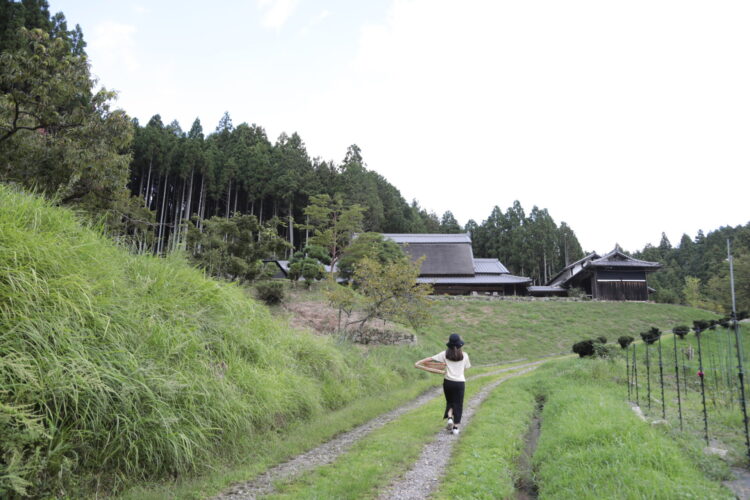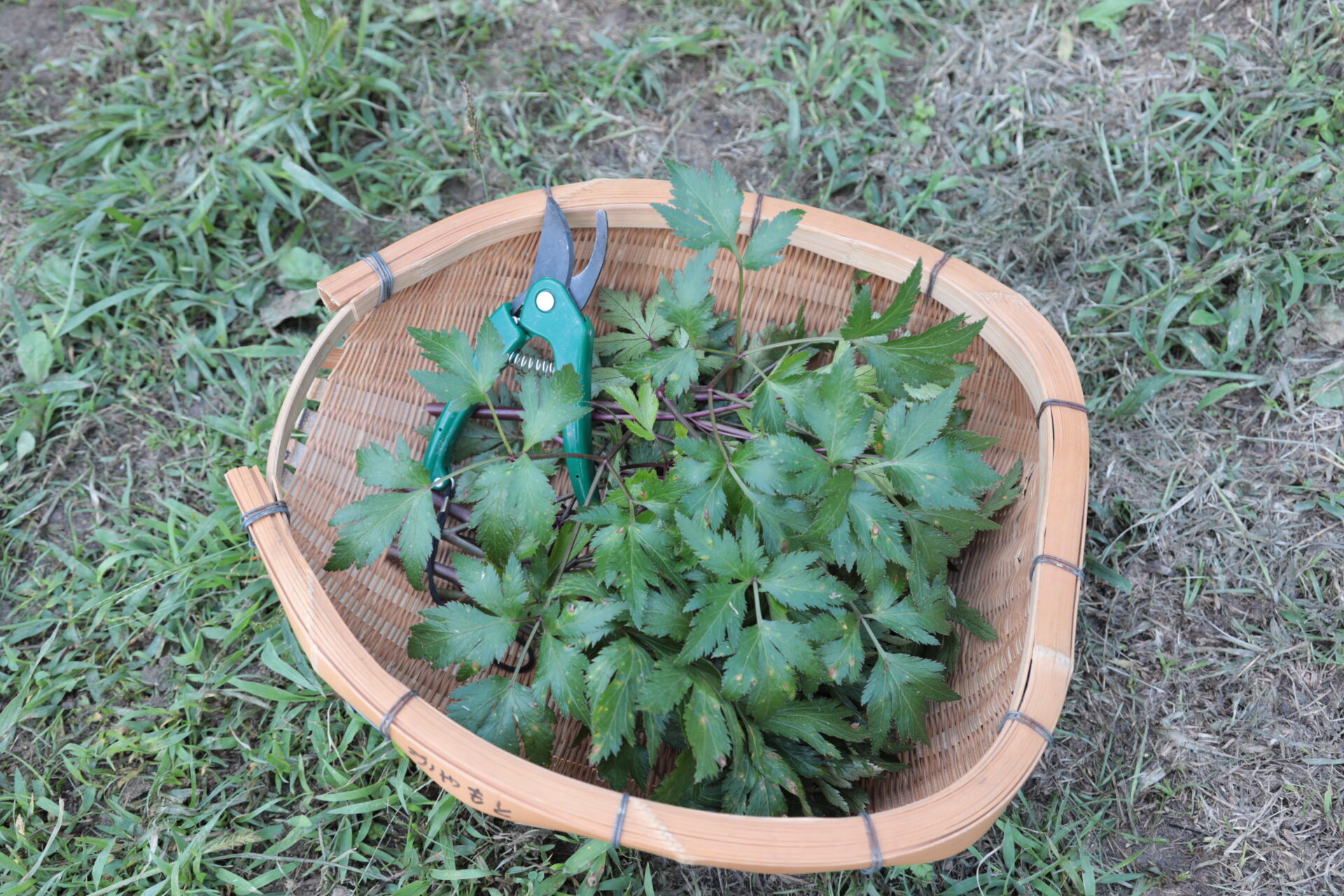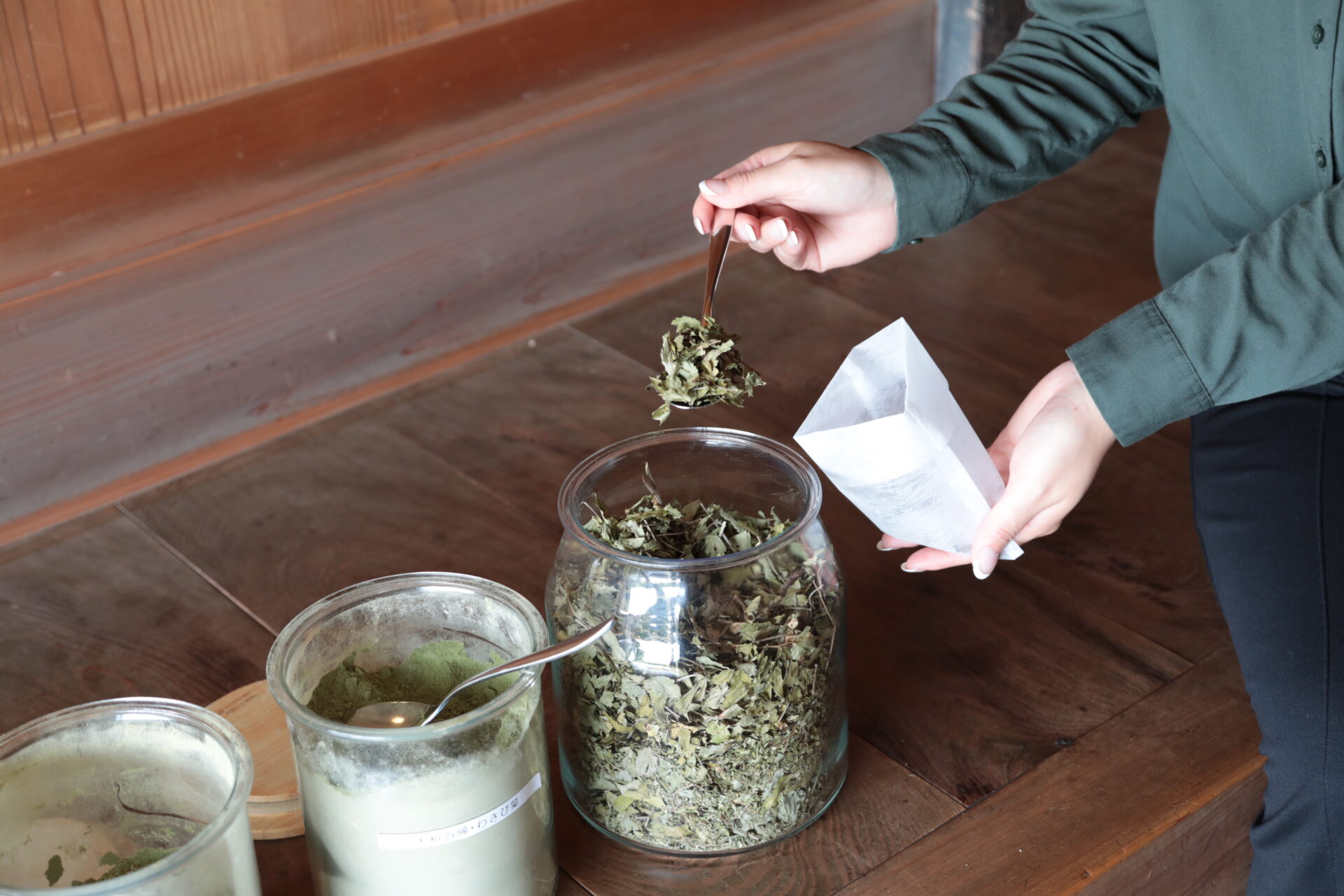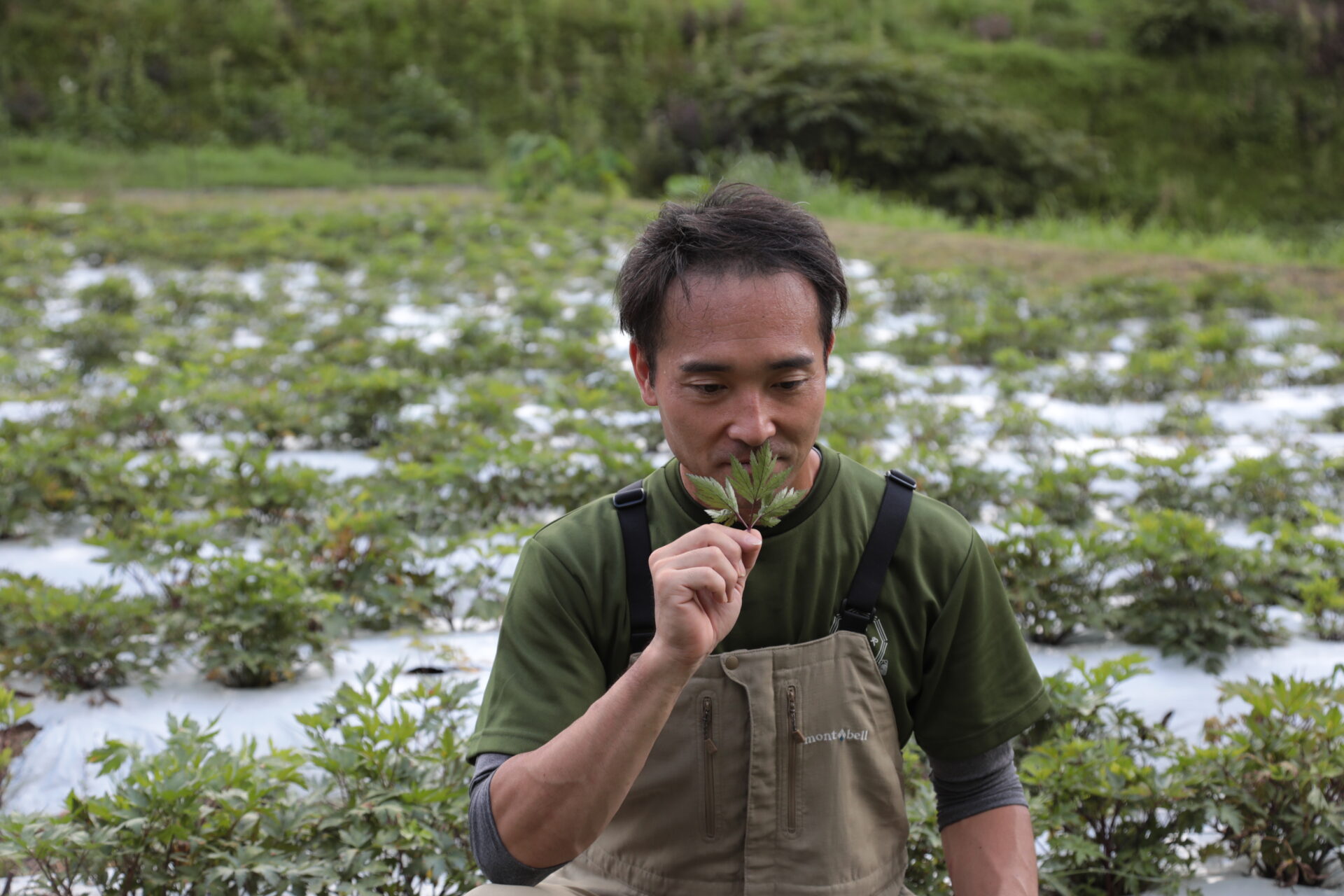Health
English

The area of Uda is famed in Japan for its association with medicinal herbs. Indeed, a 20-minute drive from Yatakiya is the Morino Medicinal Herb Garden; established in 1729, it is one of the oldest private medicinal herb gardens in Japan. Yatakiya celebrates this heritage in the ways in which medicinal herbs are interwoven into guests’ experiences, promising a chance to both encounter Japanese history and relax while caring for one’s health.
Perhaps the most significant of these herbs is yamatotouki, an Angelica variety that has long been cultivated in Nara. Below the vegetable patch at Yatakiya, long rows of yamatotouki are planted, just part of an Uda-wide push to encourage its cultivation and use as both an edible and a medical herb.

Opposite the bar near the reception area, stands an intriguing, low cabinet, on which is lined up a long row of stoppered glass jars containing green powders of various hues. Beckoned over by a staff member, guests are invited to smell and learn the names of their contents: wasabi, carrot leaves, kale, perilla, parsley… You can then pick and blend these powders together, adding spoonfuls into a little cloth bag, ready to be plunged into your private bath to create a personalised herbal spa experience.

These same herbal powders are used in Yatakiya’s little outdoor sauna tent. Guests enter wearing soft indigo robes, the same as those provided in the private rooms. Over a wood burning stove, stones are layered and heated, onto which these green herbal concoctions are poured. As the warm herbal steam fills the space, you can sweat out your tensions whilst enjoying the scent of wellbeing.
Guests can also participate in a guided tour of the garden and surrounding area. Leading the tour, Masanori Kubota, the gardener, may point out edible wild herbs growing on the hillside, a cluster of trees whose bark is used for making traditional Japanese washi paper, or the first buds of a plum tree in early spring. Arriving at Gosha Shrine, five minutes down the hill from Yatakiya, Masanori guides guests through exercises to practise balance and coordination, as well as stretches to ease out tense and sore muscles. As with the food, the intention is that these habits are not limited to your stay; instead, they are carried home with you, back into the stresses and satisfactions of everyday life, as long-term tools for better health.

>> BOOK NOW <<
★Health
Surrounding Area: Community and Culture
This text is written by Gabriela Mancey-Jones who is studying in Japan at the invitation of the Daiwa Anglo-Japanese Foundation, through interviews conducted in February 2024. She is looking to specialize in cultural anthropology with a Japan focus.